|
9/19/2017 Poetry by Dennis ElleflotIn Country It sounds I think like the litany from some long forgotten religion like wind in a forest the rhyming sinuous chant of tongues music to my dreams lost in you lost in you music of bitterness played sweet sounding music near music voiceless incantations lost to you lost to eternal quietude lost to me lost to you bound by iron bands inseparable your flesh my body your bitterness my pain your life my certain death your wish for final peace carried to the edge of night while I seek the earthy coarseness of you your musk your deathly wish Your darkness swirls curls round my face hides you forcing my memory to construct fictitious realities to draw a nourishing meal from glass and sand to carry you gentle in the palm of my hand respectful of your fragile nature creating for me an impossible burden seeking love in lusterless eyes understanding from your limited mind a place in your bitter world softness against ancient pottery shards Sometimes in dreams I see your face soft unmarked as never in life I almost love you almost reach out to touch your skin to cry for you as no one ever cried for you to allow you to need me even across the ultimate boundary to be the son never permitted closing the miles but those desires cannot reach you so on I go as best I can seeking my own forgiveness walking life's edges on moonless nights moving carefully through unmapped territories where fear seeps through me as blood through a bandage fouling my vision compounding my danger forcing me to caress your toadstool flesh to embrace you close to my heart in pretended salvation to move through fear soaked territory in godless grace demanding survival from an indifferent universe while full of salty blustering arrogance learned from you punctuated by the quiet slosh of water in my canteens Sing me please a silly song allow me the fool in you walk with me through this foul and terrible land this waking nightmare hold me to your breast please… make my death easy Nineteen Years Out Of Nam Most striking was the color of the earth red… blood-like the top layer powdery fine as flour easily disturbed by footfalls it clung tightly to our sweaty faces making us look painted made up for some masculine rite of passage Nineteen years out of Nam and I’m still picking the fungus off my nose I swear to god if you look at something long enough it becomes a metaphor Bio: This guy is a dumb rube from Vashon Island, Washington. A veteran of the Vietnam War who lives his present life in the outback of the Philippine Islands and deals with severe PTSD on a daily basis while happily over medicated and underpaid. He is married to a fine Filipina, has a daughter and son from his first marriage, and three adopted daughters in this one. The title Old Fart rests well on his shoulders and should be taken quite literally as it conceals more than it exposes. At present, he has finished the final rewrite of his first novel and is desperately seeking Beta Readers, but that is another story entirely. He is bald. 9/19/2017 Poetry By J.B. StoneThe Ballad of Joey Crown: A Poetic Tribute to the Twilight Zone’s “Passage of the Trumpet” Joey plays the trumpet Hoping that the alcohol he once used to drown his sorrows, Under the fire escapes of dark alley way, Will be left in the bar where it belongs He still reaches for the bottle of bourbon Hoping not only his thirst is quenched, But his depression is soothed He knows this isn’t the answer so he smashes the bottle As the shattered shards of glass lay on the cold unforgiving ground Remind him of the first time he saw his life shattered into pieces The first set of friends he lost The first girl he ever loved, but received none in return The first venues to rejects his gigs The first time his music failed to make someone cry, or laugh, or smile Joey stumbles in the shadows, wishing the cool night air, And brightening marquees Will stimulate serotonin levels of happiness in the brain Just something to mend the unfulfilled fragments of his soul, Because playing his trumpet was all he had to give him purpose Now it's morning, and Joey has given up He’s given up on life, given up on his dreams Joey waits until the pawn shop opens He rushes inside and trades his priceless gift of talent, For a cheap gift in the form of just a few extra bucks He steps out of the store All of sudden-- Eerrrrrrrrrrrrrrrrr!!!!!!! A service van runs him down without any yield, Waking to a world of ghosts Questioning if he is dead or only dreaming Joey walks throughout a world of spirits, Masked in the guise of everyday life The Movie Theater is there The convenience store is here As he walks this apparitional plain He hears sultry yet gentle sounds, Sounds only heard from such a brightening bugle Joey searches and searches through the hallowed scenery of the dead, And through the sound of music he meets a music maker A man named Gabriel, who for all intents and purposes let's call him an "angel" He tells joey the value of his song How shortcuts through a bottle Don't equate to the spread of joy from one's rhythm and melody How life is too short to make it shorter by reaching for the whiskey flask To bring himself and others sorrow Instead of the trumpet that he knows will bring him joy and others as well Joey is reminded of why he played his horn in the first place and his purpose is resurrected I wish for those struggling with alcoholism, And other facets of drug addiction, Who traded in their ambition and talent For a packet of pills and a melancholy round of drinks Could find this second chance I have no idea if angels exist, But just think of we could be the Gabriel to all of the joey crowns of the world We all would feel like kings and queens 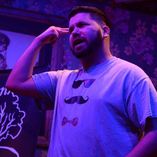 Bio: J.B. Stone, was recently published with two poems featured in The Occulum, and flash fiction which will be part of the summer issue vol. 2 of 121 words Flash Fiction. A performance poet as well, Stone has performed his work at the 100,000 poets & Artists for Change, the Toronto International Poetry Slam, Who's It 716: Battle of the Genres, the Pure Ink Poetry slam & open mic, and the Pulse Poetry Slam & Open Mic Embedded First, 2017, oil on wood, 20” x 16" "Frequently I feel that I am a guest in my own world," Laura writes, "there is undoubtedly a distrust of what the artificial interface might mean for our environment, for humanity, for our relationships." Through explorations of her own virtual communication, Karetzky creates what she refers to as visual storytelling. Snapshots on our i-phones often lack the depth an image can usually convey, and yet when transposed onto these oil paintings a whole new life shows up in the image, altering the perception of that particular moment in time. The image itself is inherently a thing of time, it leaves place marks of where we were, the expressions that our faces wore, the ease or uncomfortability of our own bodies, but they don't always contain the whole truth, and if the focus of the image is us, it most certainly never does, although one should never say never so assuredly. In some ways art plays with truth to better understand it, questioning how the virtual houses us, how our form might be slightly different in that place, helps to add ground where it might at times feel more like air. "I do not think that Selfies as memory are accurate," Laura says. "In many ways they represent that cleavage in communication I am exploring. And as so, I am looking at all virtual communication as a kind of staged choreography. My work is venturing to acquiesce to the synthetic and affirm our idea of what is real." AHC: What has your own personal evolution towards a life in art been like, are there a series of moments you can recall where this path, this calling, began to become the one clearly marked for you? Laura: My mind has always worked in a way that questions the visual. I notice patterns and graphic tensions in the world around me. Even as a toddler sorting Cheerios, my parents identified this and offered me immense support to pursue my interests. I am constitutionally a people-watcher and it is the formal relationship to how we configure with one another that interests me so much. In college when narrative art was discouraged and abstraction prevalent, I was, despite every attempt not to be, a story-teller—this is how I saw. Often observing the world from the outside, there was never a question of how I would manifest my preoccupation—I organize my thoughts visually—figurative art making was tandem with my way of thinking. Inception, 2017, oil on wood, 30” x 24” AHC: Could you explore and expand on some of the motivating ideas at work in your art and the process behind the making of them? How does the idea for you begin and what does its evolution look like during the stages of its development? Laura: For as long as I can remember, my work has focused on my relationship with the greater human social structure and how to map these experiences of consciousness. Moving between video, installation and painting, I become attracted to an image while I’m not immediately sure exactly why it’s pulling at me. Often it’s through the exploratory activity of making art that my objective is elucidated. My work comprises a visual diary where the procedure is to grapple and find comfort with a certain event or experience that I couldn’t process completely the first time. It’s through engaging the image that I realize the nuance of our human relationship with it. One idea leads me directly into the next. Just as my perspectives unfold and advance so does the subject matter and crux of my work. Tiny steps that move through time and space: I am never at a loss for what to make art about, form and conversation is inherently expanding; time is my biggest challenge. Embedded FaceOnFace, 16” x 12”, oil on wood, 2017 AHC: Do you see technology as an impairment of our memory in any way, or more as an improvement, or a bit of both? Your oil paintings have a way of enlivening/enriching the digital screen in a way that our phones themselves lack the ability to do, do you see your paintings as a way to add or layer soul onto the digital remnant? Laura: Through my inevitable involvement with the computer interface as a means of communication, I became fascinated by the shift in point of view, where we are surreptitiously third party voyeurs to our own experience. Frequently I feel that I am a guest in my own world in a sense, so this perspective is acutely interesting to me. There is undoubtedly a distrust of what the artificial interface might mean for our environment, for humanity, for our relationships. If a pixilated message is always presented with the self-awareness of the constructor, can it never truly be clean handed? I do not think that Selfies as memory are accurate. In many ways they represent that cleavage in communication I am exploring. And as so, I am looking at all virtual communication as a kind of staged choreography. My work is venturing to acquiesce to the synthetic and affirm our idea of what is real. Starting with genuine actual conversations on my Smartphone, and capturing a single frozen frame: the moving image is made still and then re-imbued with movement again as brush strokes on wood reveal a licit passing of time. For the last two years I have been using an indirect painting technique and a very limited palette. Structuring a subtle shift in tone that separates each day’s work, the layers remain obvious. For me, it is an attempt at communion; to explore the tensions in how we strive to stay connected over all kinds of distances. Yet it is the emotions embedded in an image that are illuminating, especially when found colliding with other tangential or unrelated events on a screen. This seemingly arbitrary intersection is what I currently find especially worth exploring. Nectar, 2013, oil on linen, 50″ x 60″ AHC: Who are some of your artistic influences? Is there anyone outside of the art world who has had a huge impact on you and your work or who just generally inspire you on some level, writers, filmmakers, comedians, musicians etc? Laura: I think of myself as a visual short story author. James Salter’s work, the imagery in his writing, the calculated editing and near remoteness of his approach appeal to me immensely. It is the scrutiny in another’s endeavor that resonates with me the most—and a sense of what’s withheld, what’s trying to be found. Wes Anderson’s movies have that, the Coen Brothers, Mamet, Beckett, Ibsen. I love the query in de Chirico’s early paintings, the confident graphic and divisive quality of light, set against the emotional uncertainty of what you are unable to see. The environment is sturdy and evasive at the same time. It makes us question how we navigate space. I love draftsmanship—of course this is exciting. But the search for human connection and exploration of its incongruities resonates greatly for me. There is DaVinci, Morandi, Goya, Balthus, Hopper, Andrew Wyeth, there are so many. I listen to music when I work, almost always music that tells stories—though not always through lyrics. I’ve been listening to a lot of Keith Jarrett these days. I love the way he keeps you suspended with each phrase. You don’t always know where he’s going and where he’s going to end up, but he is able to get you to trust him enough to want to take that journey with him. I like anything that asks us to reconsider our expectations. I think trust is essential to the inquiry, otherwise the viewer can’t open up enough to be taken in. This is the essence of the quest. Embedded Rainbow, 2016, oil on wood, 30″ x 24″ AHC: What do you consider, personally, to be the most sacred and enduring aspects of art? How does it enrich our world and our cultural memory? How has it enriched or altered your own life? In your opinion, what does art, at its finest moments, bring into the world that would otherwise leave us more impoverished without it? Laura: At its most sacred, art should be a mirror. The most enduring thing that art can do is to evoke open-ended questions and guide us to see from multiple perspectives. Ideally it can help us see ourselves, and see ourselves differently. Social Media invites us to accept cultural memory as narrative flux as we digest information that is constantly evolving and diverging. It may be now commonly understood that recall is simply an illusion that can be manipulated and edited outside of time and experience. If the narrative picture of the past is always in flux then our image and identity of ourselves is unstable, also in flux. I have a friend who recently reverted to calling me on the phone. I would send a text; she would pick up the phone. Radical. At first this was nearly unnerving, as I felt almost apologetic for being available. The conventional phone call, where a candid conversation can exist unpublished and untraceable, has become shockingly progressive and new. Embedded Portal, 2017, oil on wood, 24” x 30” AHC: What is the first work of art you encountered that took your breath away, that lit a fire in you? Laura: I can’t recall a time before I was breathless by art. Art has always been present in my life, in our home, in my world. There is a wall mural by José Clemente Orozco in the town where I grew up that challenges culture, education, civic structure and government. It’s a celebrated work that questions the core fundamentals of the very people who commissioned the piece. I always knew that art was probing, and that that was responsible necessity from both sides. My family did a good job of presenting these possibilities to me partly because it was so important in their lives. We socialized and built vacations around visiting museums and working in foreign cities and cultures—this is what made days exciting. PoorConnection, 2017, oil on wood, 14” x 11” AHC: Do you have any words of advice or encouragement for young artists and other creatives who are experiencing self-doubt in their art, frustration or blocks? What are the types of things that have helped you to move past moments where you may have become stuck creatively? Laura: One thing I have learned that is so comforting to me, is that if I hit a snare or feel I have ruined a painting—that if I keep going, with perseverance I can work through to the other side. With diligence and focus there is always another side. Work history means a lot in a piece. Sometimes it’s the effort of the struggle that can be felt, even if not seen, and this is powerful. I have also learned that if I become overly enamored with a passage, I usually become paralyzed for the other passages, and the work fails. Being able to trust the entire process, seeing the large and the minute simultaneously, this makes all the difference. Understanding how to embrace the discomfort of grappling through a rough spot—knowing that no mark can be sacred or isolated—That confidence is immensely freeing. Embedded HouseBed, 2017, oil on wood, 24” x 18” Embedded MeandM, 2017, oil on wood, 20” x 16” AHC: Do you have any upcoming exhibits or new projects you'd like to tell people about? Laura: I just closed a show, Embedded at Lora Schlesinger in Los Angeles. This exhibition was a culmination of two years exploration of the recursive double-portrait in our FaceTime experiences. One image installed in another. One life anchored in another. I was looking at how we search for alliance both formally and emotionally. I am now starting to think about the inevitable space between that association. How fraught communication is, and the rift that remains no matter how vigilantly we attempt to nestle ourselves in. What is presented versus what is perceived is only part of what I am talking about. It’s the intent of the image as it conflicts with another, and that is what I want to follow next. Embedded Laundress, 2016, oil on linen, 40″ x 40″
For more visit www.laurakaretzky.com/ All images © Laura Karetzky 9/18/2017 Poetry By Gale AcuffGood Boy At three o'clock in the morning I check my email. I hear from three editors that I can't write well enough to please them. They're right. I can't please myself, either is why I keep at it. Oh, I please for a while; then I try again. All my poems sound the same, they say. That's monotony --the poor man's consistency, the desperate writer's of-a-kind-ness. What's next for me is me again, with a trace of growth if only some age. I teach in China now so I can learn my own language again. There are about a billion-and-a-half people, so I can concentrate. A lot of poverty--I'm blessed. Relatively, that is. No one needs me in my country --here I'm valuable just because I live and speak the international language of business . . . until the West collapses and Asia rules the world again. I know what I'm not doing--I've written this poem over a thousand blooming times. It's not the same but it is and while that's not art that's life. No wonder they can't shut me up. Third Eye In Sunday School today Miss Hooker said that God is everywhere. I raised my hand and asked, So why can't I see Him? She smiled and told me that I see Him all the time but only with my eyes and not my heart. I asked her how to see Him with my heart and she said that I must pray every night and then I will, maybe not right away but eventually. I think that means sooner or later, most likely later but not too much later. I'm ten years old so to me not too much later means when I'm old but not old enough to die naturally, say 80 or 90, but probably 40 or 50--I figured that out, not Miss Hooker, so I must be getting smarter. And that's if I don't die of something other than old age, cancer maybe, or a heart attack, or getting smashed by a car on my way home from church next week or on my way to, I walk the mile there, and back again of course, and against the flow of traffic--I'll know what hit me that way, will see it coming, death grinning like a Fairlane or Bel Air or Belvedere or even a Cadillac, all those cars with chrome teeth between their eyeball-headlights, sometimes four. I'd rather be killed by an XKE but there aren't any rich folks around here so I doubt I'll ever be that lucky except through the kindness of a stranger. If I die a sinner I'll go to Hell forever, which is a mighty long time and it's only 1965. But I'll never sin again, or not as much, if I pray a lot like Miss Hooker says and if she's right I'll see God everywhere so I'll be safe. Then when I die I'll go to Heaven and live with the angels and my dead dog. Man, will it be good to see him again, I've missed him, he was a good boy and when I found him run over he was like a helpless puppy again but dead. So I pried him off the road, dried blood is like glue between fur and blacktop, and I had to hurry or get run over myself although I guess a car would've honked at me to get out of the way, slowed down maybe, and some Good Samaritan would've stopped to help me but it never came to that. I got Caesar off the road and into the wheelbarrow and rolled him (and me, too, I guess--at least I followed) up our dirt driveway and around the shack and into the back yard and down into the garden, beans and corn on one side and flowers on the other, then onto the last terrace where our property ends at the fence by the Baptist Church where I don't attend, we're Methodists, who knows why, I just go where my folks tell me though they don't go themselves, they stay home and sleep late on Sunday mornings, and I wonder if they see God like Miss Hooker does, with that third eye, the one in the heart, I mean. Then I buried him, all by myself, and me just eight years old then. And when they asked me later, Son, where's your dog, I told them He's in the ground and up in Heaven now, then told them his story, how I found him on the highway when I went out to fetch the Sunday paper from the shoulder. Oh, Father said. Well, Mother said. Then they had another cigarette and more Sanka. After supper we had apple pie with cheese, my favorite dessert--Death's not so bad. I think maybe I saw God in the hole and covered Him with dirt and walked away and the grass grew and smoothed Him over and I can't find where He is to dig Him up again. Just to see what He looks like now. Childish Things I'm singing some Van Morrison song in her father's shower. He's gone for three days to the Carolina coast, for fishing, and so that he can slip off to rendezvous with one of his girlfriends. I met the man a few days ago--he's no handsomer than I but he has several women, so his youngest daughter, my main squeeze, tells me. My revenge is she--one of my students, who came often to my office to ask why D.H. Lawrence short-stories are so sexy. Next thing I know I'm licking her finger melting frozen yogurt, across the street by the XXX cinema which shows mainly Disney films these days. I call her my little mermaid--they look much alike. Yes, but our tails are different. I'm pretty lonely so I forget that caveat about teachers and students not dating, and that crap about abuse of authority and power relations. I can't help myself. Once or twice a week I visit her. We step out for supper or she prepares it for us. On a full belly I get awfully affectionate sometimes. And, besides, her favorite TV show is thirtysomething--I'm thirty-three to her twenty-two and that's romantic. We'll be sitting in the S & W Diner, which we rename the S & M, and some geezer will limp up to our table and say something to signify he knows what we'll be up to that evening. Right on:I shoot that I-won-the-Lottery look and he flashes that If-you've-got-sex -and-love-together-you've-really-got-it- all smile. I do and I have. He leaves. She says to me, He's a dirty old man. I say, No, he wants to be me. She titters. It's been about two years since my divorce and I'm saying things like You know, I've had more pleasure with you in just six weeks than I had with her in nearly four years. Truthful bull like that. A few days later we visit her hometown--Fayetteville, North Carolina. A lot of soldiers there. Fayette Nam, some call it. Or Fatal-ville. Eight cats in her home. Photographs as you climb the hall stairs to her old bedroom. It's still full of childhood touchstones. Tot's rocker. Fat-faced minimal Ziggy posters. A Loverboy calendar. A hanging which announces, When I was a child, I spake as a child, I understood as a child, I thought as a child; but when I became a man, I put away childish things. And I don't want to have sex with her here but we do. She teases and coaxes me out of me again--it doesn't take a lot of persuasion--and when I wake next day she shows me the master bedroom and I wash each other's dried desire from me while I sing a medley, badly, of Van's songs. I even use her father's aftershave, which I don't like but she does, and as she's scrambling eggs for breakfast I see it all at once and I can't swallow. Honey, what's wrong? she asks. And I say, Nothing, nothing, and that's the truth, that what's bothering me is that everything is as it should be. You've changed my life, I tell her. I've said so before but not with the thrust it has now, which is the whole truth and nothing but. I smoke and think, Has she known it all along? but I don't ask her--I might frighten her and I'm already terrified. I drive her father's new Chrysler to the grocery. When we return she poaches sea-bass for our supper. We watch a film, go upstairs to her room, which is also my room. I work off my disbelief inside her. You're so sexy, she whispers. You're a great man. Yes, I say. You're right. I believe in you. Bio: Gale Acuff's poems have been published in Ascent, Coe Review, McNeese Review, Adirondack Review, Weber: The Contemporary West, Maryland Poetry Review, FloridaReview, South Carolina Review, Carolina Quarterly, Arkansas Review, Poem, South Dakota Review, and many other journals. He has authored three books of poetry: Buffalo Nickel (BrickHouse Press, 2004), The Weight of the World (BrickHouse, 2006), and The Story of My Lives (BrickHouse, 2008). He has taught university English in the US, China, and the Palestinian West Bank. 9/17/2017 Poetry By Adrian SlonakerThe Lagoon The dented suitcase shows its age, and so does she. Staccato and stoic is her step; weary but yearning are her eyes; she follows the curve of the lagoon, black and still as the day when she was evicted from hard-earned, hard-loved contentment. Like a Mondrian painting without its stripes, she feels denuded of her normalcy. She's returned to confront she doesn't know what, to clutch at the kind of closure that doesn't come. She exhales huskily, checks her watch as if for wisdom, and walks away yet again. Inspection A glance in the looking-glass compels a confrontation with conflict, What motivated the masquerade? Fits of fear and shards of shame slash and lacerate like in a back-alley brawl to the tipping point of frantic flight from festering fantasies. Games of closeness and chess were tagged for transience, having been carefully constructed on cornerstones of fakery. Washing away salty splotches of stage make-up reveals skin I scarcely recognize. Hearing a name ringing strange, I face my eyes, orbs of truth, and envy the blind. Initiation Tonight the gap, the vacant void responsible for tears and turmoil was filled surrealistically and sensuously by the fierce, wolf-eyed Belgian who introduced me to myself in a riot of rough tenderness. amid a dazzling display of chrome, pink, and ivory, the aroma of bubble gum and bleach. I’ve been exposed; I’ve been violated; I’ve been possessed, as lingering childhood needs haunted me in a haze of confusion and comfort. like a virtuoso he played me, absconding with a virginity I never knew I had, and here I lounge in the loo of an ice cream parlor alone and forever sidelined, yet smiling in my afterglow. 11:00 p.m. Encircled by the depth and blackness of the ancient elms, inspiring by day, scary as hell at night, we meet. Those glittering eyes-as if feverish, but in a good way, the food of my dreams! At once my senses are smothered by your fingers, your presence, witnessed only by a few furtive stars somewhere And a relentlessly gurgling stream. Wagnerian operas thunder through my mind, replaced by the estival sounds of a carnival. This shouldn't be, but it is- before the final wave of overwhelming wonder yields to guilt, to crushing guilt, and an anticlimactic, awkward farewell, until next time. Trespasser In the desolation of the desert- My desert, infused with blasts of flesh-roasting heat- my cabin, my voluntary exile, my world, populated with modcons like aircon, the silent, ever-shifting dunes of sunburnt beige revolving relentlessly around it. You came marching in military fatigues, swimming in your own filthy sweat, bootprints marking a trail from nowhere to nowhere. Angry, I felt invaded, my eccentrically tidy calm ripped asunder by a trespasser. Yet I recognized you: your searching eyes, your persistent pursuit of the elusive. I knew you, damn it. I set fire to my own fences, I invited you inside- shading you in cool darkness, bathing you in ice with my own fingers, feeding your lips chilled fruits, feeding your eyes swirling watercolors. Somewhere between your solitude of bravery and my solitude of fear, a freaky trust was forged. By the time you trekked off, my mind had been broadened, and yours had been blown. My Grandpa Was a Mennonite My grandpa was a Mennonite, but I've never washed anyone's feet, although I've sucked strangers' toes. My grandpa had gray eyes like me, but his, unlike mine, weren't ringed with Rimmel Scandaleyes Retroglam mascara. My grandpa, a son of Alsace, spoke French like me, but the tongue with which he spoke it wasn't used to French kiss meaty male mouths the way I do. My grandpa begot three kids- all model Mennonites, but I've nurtured ninety thousand neuroses- all strictly secular. My grandpa swilled wine (some Anabaptists tipple) with his brother, but I quaff caffeine-free diet cola alone. 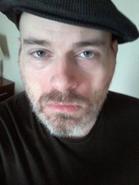 Bio: Adrian Slonaker works as a copywriter and copy editor in Lancaster, Pennsylvania, with interests that include vegetarian cooking, wrestling, and 1960s pop music. Adrian's poetry has appeared in Uut Poetry, Ginosko Literary Journal, Zingara Poetry Picks, Plum Tree Tavern, Amaryllis, Oddball Magazine, and others. 9/16/2017 Poetry by Jack M. Freedman Game-Set-Match Love came to me, proof was on the bottle and that was all I was 15 and got drunk for the first time in a tool shed Now that I am in my 30s, it no longer serves as a fond memory My first drink was a 40 oz Budweiser consumed without struggle Saying deuces to sobriety, reality didn't matter Drinking 5 shots of tequila in one sitting and no hangover incurred seemed like an advantage A game of Kings once left me without footing, unloading urine underneath the university underpass Set myself up for failure when I nearly met my match in front of a train Lobbing back and forth between moods and asylums Smashing through backhanded compliments and condescension Acing the final exam of hiding my habit beforehand Volleying any sense of responsibility or fault Rage ensuing when I was out of booze Caught in the net of inebriation Until the racket ended in my brain And the ball came back into my court Appreciating the beauty of grass The stability of asphalt And the regression of pleasantries derived from burying hands in clay Broken (The World May Never Know) Transitions through time have made hearts harder, darker, and frail. One may never know when circumstances are unbeknown to he whose heart has not budged toward a sense of compassion. He wants to share, but doesn't know how. He is broken. He is a man who never was in combat, but felt like an army of one (as a whole and not part of a unit). One may never know when the soul next to him on a train is one who has a damaged heart. The bystander may never understand that the pain they share is similar. Areas can be congested sometimes. It is the type of congestion this man may only wish upon noses caring about his information without giving a shit about him. Some hear screams in the middle of an otherwise tranquil night. Sometimes they are screams only he senses: a lost relative, a lost friend, or a way back to security when a blanket is replaced by a gun. He may never know if it will ever be used or know the purpose of even owning one. He may never know if a bullet can replace a damaged valve and potentially attach itself to a self-fulfilling prophecy. Sometimes blood lines need transfusions. He needs a sign that he is not alone. He needs a potential to let go of grief. He desires to cry on a shoulder that is not attached to a highway. Sometimes stories are morose. Sometimes stories are a morass. One may never give a damn about a temporary glance. A light needs to be borrowed, whether it burns a cigarette or brightens an outlook. He may never quit his addictions. He may never abandon the habits until the day he dies. He may never realize he metaphorically died years ago. Some may never know if the person next to him attends mass and needs more than a handshake. He could see it as a superficial gesture and would never think to share his true nature when clammy skin encases mammoths of mediocrity. The desire for happiness in his world in some senses is a dream in which cracks are inflicted on the metal pipe rather than through the esophagus. Like the pipe, he is fragile. He is a loner who hates being alone. But truth be told, some streets need attention. Some avenues of conversation are valued more than gold. Some boulevards are difficult to maneuver and sometimes a fender feels like a fist. He has hesitated to reach out under the guise of never knowing the sense of sadness he might convey. He fears his heart may get arrested, as sometimes we face a crime when the heart is neglected. Sometimes, the crime is punishable by death. He wants his heart to stay open without needing a scalpel or clamps. The exact same pain threshold is exceeded and proverbial morphine through veins is the only fix. I may never know. You may never know. He may never know. She may never know. It may never know. We may never know. They may never know. Who the fuck knows? Knowing why is half of the battle. Knowing how a broken man can heal is different. He can be fixed, but the cracks in his soul are still visible. They will always remain and in this respect, he is not alone. Lonely people need to find one another. Perhaps they too experience excruciating anathemas and perhaps one of them is the person sitting next to him and perhaps the entire fucking population of a given train is like blood scattering within a cardiac membrane and perhaps the line between the aorta and the jugular has been derailed. We suffer in silence, only to realize sooner rather than later that the feeling of loneliness is something we will always know. When the world eventually ends, the documentation of loneliness will outlive the roaches. At least the roaches know how to form a community. 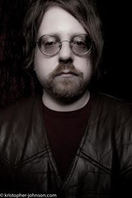 Bio: Jack M. Freedman is a poet and spoken word artist from Staten island, NY. He penned three chapbooks: Never Lick the Spoon, Tobias, and Art Therapy 101. In the US, his poetry was previously published in New York, Massachusetts, Texas, Oregon, Vermont, and Florida. Abroad, his work was published in France, Canada, and the UK.http://www.facebook.com/jackmfreedman My Rainbow, Your Rainbow, _______, gesso, acrylic, color pencil, paint marker, crayon on Mylar "Art is another kind of door into peoples’ heads," says Izzy Nova, "and we best be learning what’s happening in there." Nova's paintings take on the dark and difficult tangle of subconscious impulses while making important visual statements about violence, loneliness, despair, the quirk in the false perfection of the everyday, all of those forms that take shape from some place else, as Izzy calls the almost unnameable place that first drew her into the power of art and its ability to unleash both the storm and the stillness, the explosion in the street and the quiet hour. "Making art for me is like meeting and bringing a complex stranger to life," Nova says. "Abandoning forethought and expectation recently both in art and in life has given me comfort in my inability to comprehend, control, or at worst, change what is larger than me." On the surface these paintings shore up a feeling of chaos, of things gone beyond one's control, but embedded deeper in, sometimes crawling out of the corners of the canvas, is a very real and solid sense of purpose, a tent pitched in the void mid-storm, lantern light to read the hieroglyphics of promise and possibility by, in a place where, what art can do, is only measured by what we are able to imagine, and if we've closed that door we best be prying it open again. AHC: What has your own personal evolution towards a life in art been like, are there a series of moments you can recall where this path, this calling, began to become the one clearly marked for you? Izzy: Happiness for me starts with a scribble that keeps up with how neurotic I’m feeling. I have always liked art making; I identified with it at an early age, and thank it for the security and escape it gave me all these years. Other activities don’t give me the continuous high or challenge that art continues to satisfy me with, also in consideration to the stress that comes along with the creative process. Growing up, I was the kid that got in trouble for doodling on my notes and tests. I paid attention to my imagination more than I did real life and my interests were related mostly to fantasy and ‘some place else’. It’s safe to say it’s been a long time of weaning off of these pleasures, but at least I have expanded on my doodles. X-x, 2016, 24 x 33" gesso, acrylic, crayon, and graphite on Mylar AHC: Could you explore and expand on some of the motivating ideas at work in both the images that you make and the process behind the making of them? There is such anarchic fluidity at work in your pieces, almost as if they take place at the beginning of time when the void was still potent and open to interpretation. How does the idea for you begin and what does its evolution look like during the stages of its development? Izzy: I allow organic moments to happen, such as when gravity comes to play with wet, dripping paint. Following, I allow some of these instances to lay out what I will do next, often taking two steps back to make room for even more growth. The final product is a foreigner, that’s been roughed up and coddled by me while I shaped it. Making art for me is like meeting and bringing a complex stranger to life. Abandoning forethought and expectation recently both in art and in life has given me comfort in my inability to comprehend, control, or at worst, change what is larger than me. Instinct drives me to work quickly, chasing after a train of thought or feeling. Whilst, my other job is about connecting dots and enriching relationships in the composition’s space. It’s a balancing act that I have to walk away from sometimes and look at with fresh eyes. Spectrum, 2016 - 2017, 84 x 60", gesso, acrylic, colored pencil, paint marker, and crayon on mylar AHC: Who are some of your artistic influences? Is there anyone outside of the art world who has had a huge impact on you and your work or who just generally inspire you on some level, writers, filmmakers, comedians, musicians etc? Izzy: I’m moved by the story of Chuck Palahniuk, who during a hard time in his life decided the pull over to the side of a road and lay face down in front of his car headlights. He’d hoped someone of authority would check on him and tell him everything was okay eventually. No one came and the creative idea for Choke was produced. That’s inspiring. Ledge, 2016- 2017, 30 x 42" gesso, paint marker, crayon on Mylar AHC: What do you consider, personally, to be the most sacred and enduring aspects of art? How does it enrich our world and our cultural memory? How has it enriched or altered your own life? In your opinion, what does art, at its finest moments, bring into the world that would otherwise leave us more impoverished without it? Izzy: Art has given me a means to express myself in a way that isn’t punctuated and I continue to have the chance to investigate why I need that to be. We would be impoverished without art because we’d be impoverished of perspective and investigation. That kind of freedom to make and view art can’t be understated enough. The more perspectives available to us, the more we know what is out there and are better conditioned to think more openly. It's another kind of door into peoples’ heads and we best be learning what’s happening in there. Target Split, Spring 2015 126 x 60" Mylar, crayon, dry and oil pastel, water color, color pencil, charcoal, and acrylic AHC: What is the first work of art you encountered that took your breath away, that lit a fire in you? Izzy: I can’t attest to having my breath taken away or having a fire lit in me, but on my first trip to NY when I was sixteen before I had really been exposed to fine art, I saw Woman Ironing by Picasso in the Guggenheim. The image of how this figure looked like she had the weight of the world on her shoulders and she'd been manipulated by it really stuck with me for a bit, and I have thought about the figure in art differently since then. Intro, 2015-2016, 36 x 46", acrylic, gesso, paint marker, color pencil, and crayon on Mylar AHC: Do you have any words of advice or encouragement for young artists and other creatives who are experiencing self-doubt in their art, frustration or blocks? What are the types of things that have helped you to move past moments where you may have become stuck creatively? Izzy: If you don’t know where you are, what exactly it is you are doing, but your intention is growth, you’re likely in the right position. It may be a matter of hitting up the roots from where you started from or deliberately rocking it out in the storm, till it’s clear. When I am stuck and frustrated while making a piece, I may either need to dig back in the work and make room for new evolutions or try to take a look at the piece less personally, after having a break or working on something else. Object I Worry About, 2017, 42 x 30", gesso, acrylic, paint marker, crayon on Mylar
AHC: Do you have any upcoming exhibits or new projects you'd like to tell people about? Izzy: Fall is a super exciting time for art. I’m working on new pieces and incubating about possibly putting up another community show, by the end of the year. For more visit www.izzynova.com All images © Izzy Nova 9/15/2017 Poetry By Jonathan A. BloomReturn To Manhood Sunlight speckles the woods The cat plays in the birdbath One sock lost in the dryer Appeared in the cupboard Next to the coffee Your heart loves me Your makeup mocks me Your long legs taunt me I never dress to your satisfaction If all the empty bottles broke into diamonds I would ask for your hand In my isolation I pray for change To emerge beautiful for you Not a coward nor a death mask Not an empty shell in the sand Washed up Filled with the echos of life All but my own So many are out there I just want to play in the birdbath Walk through a sun splattered forest Know where my clothes are Love life again Love you again And return to manhood Beyond Polarity She disappeared into her cigarette returning only to say she was leaving her medication got mixed her eyes were slits she just wanted to drive and listen to music almost got into three accidents today she said feeling better now the mixing was unintentional she felt guilty for enjoying the feeling a beautiful young girl at peace behind the meds slipping out of reach like smoke through a keyhole I couldn’t hold on to her and finally stopped trying her taillights dimmed as she vanished into another adventure on a mountain road beyond polarity A Good Drunk I could have been a good drunk Sitting at home in the middle of the afternoon Rubbing my balls Fantasizing about past loves Not praying for forgiveness And not making much sense I could have been a good drunk Sleeping through the bird calls And mumbling and stumbling over the railroad tracks to get more I could have been a good drunk To the prostitutes and lost dogs A repeater to the cops A nuisance to the neighbors Empty bottles piled at the back door Broken glass, vomit, and soiled shorts I could have been a good drunk Not caring and cursing the day Not hearing the laughter Or my doctor Or the train Jumping Away He jumped away from the moon --- with the pigeons and the tides --- to rest like a flower --- on the sidewalk --- in the sun There Was a Boy Laying There was a boy laying where no boy should lay, a young girl stood by his side, sobbing and wailing feeling what no girl should feel we all died a little that week, but the young boy sleeping in the box, died more than the rest of us, he was her first true love, she said and she never left his side, never stopped touching him, talking to him, or mourning him she stared at a photograph, then placed it in the casket, the casket was placed in a vault, the vault was lowered slowly into the earth, the young girl wailed and cried, in this unthinkable moment of horrors and lies this young girl’s love was the most beautiful thing I had ever seen Broken Mirrors (For Charles) he was brilliant and glamorous as a gutter he read everything drank and fought in alleys poetry oozed from him as naturally as blood seaping from a wound he’s disgusting and violent always thirsty and stained with the tar of his own breath thriving in that place where others fall to in disgrace I can depend on him for broken mirrors and anger and viscera and I cringe compelled to read and read and read because of my similarity to him 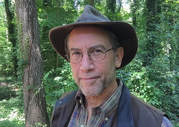 Bio: Mr. Jonathan A. Bloom is a retired archaeologist living one day at a time in Atlanta, Georgia. He is a musician, writer, and actor. He plays flute, harmonica, penny whistle, and pan flute with various local musicians. He writes short stories and poetry as the spirits (or demons) move him. Mr. Bloom studies acting and has been cast in several short films. 9/14/2017 First Goodbye by Ron Gibson, Jr.First Goodbye The first time I said goodbye it was early morning. My family was gathered in the living room of my grandfather's house. Usually the TV was on (ostensibly another member of the family), but not on that day. On that day, as my mother held me on her lap, everyone sat in silence while my grandmother cried. My aunts, uncles and parents might have, as well, but it was hard to tell with my grandmother carrying on. Ever since receiving news of her mother's death, she had been crying nonstop. A self-destructive, self-sabotaging cry. Her eyes had already puffed up so badly they were nearly shut tight, like Rocky Balboa after fifteen rounds with Apollo Creed, and the funeral arrangements had not even been mentioned yet. With the curtains drawn so that nosy neighbors could not witness our grieving, my grandmother tried to dial a phone number. I remember the way she squinted through her raccoon eyes in the dim light at her small phone book, trying to make out the number and spinning the rotary dial correctly with her shaky finger. We all sat and listened to whatever she was saying to whoever she was saying it to. This was a regular practice even under normal conditions. There were no secrets amongst us. Everything was aired out, everything was free to be inspected. Or, at least that's what submitting to this communal eavesdropping seemed to say. In reality recreational drug use was fast becoming addictions, sibling rivalries led to infighting. Backbiting grew so personal and vicious that it was hard to believe the combatants actually shared blood. Around five years old, I was supposed to be too young to notice any of this, but I heard the lowered voices when one left the room and became the subject of gossip, and I felt the tension when that family member returned. But noticing these things did not make me smart. For, when my grandmother placed the telephone receiver back on the cradle, there was a lull, as if everyone was sort of growing used to the idea of my great-grandmother having passed on. Everyone, that is, except my grandmother. But, as if going out of my way to prove how dense I was, I got off my mother's lap and walked over to the sofa where my grandmother was crying. I remember standing in front of her --- this woman that dearly loved her mother; who did not want to imagine a world without her living across town, a phone call away from having coffee together, to have someone to talk to, to share the struggles of motherhood with --- and I kept staring at her swollen eyes and tears, until she noticed me and leaned forward. "What is it, honey?" "Why are you crying?" The look she gave me still causes my stomach to bottom out, still makes me wonder what I thought we had been doing all that morning. I don't know, but I do know that I will never forget the way my grandmother said, "My mother is dead," and began crying harder than ever. Instead of saying, "I'm sorry," all I could say was, "Oh," walking back to my mother's lap, face burning with guilt, not knowing if I had missed some vital clue as I slept in the car that morning or if I was just the dumbest kid in the world. Bio: Ron Gibson, Jr. has previously appeared in Identity Theory, Midwestern Gothic, Cold Creek Review, L'Ephemere Review, Moonsick Magazine, Fiction Pool, Real Story UK, Easy Street Magazine, Rabble Lit, (b)oink, Mannequin Haus, Stockholm Review of Literature, Cheap Pop, New South Journal, Jellyfish Review, Whiskeypaper, Unbroken Journal, Crack the Spine, Gone Lawn, etc... forthcoming at Occulum, Lost Balloon & Ellipsis Zine. @sirabsurd From the opening shot of "Time" (Dir. Michael Hogan) Brenna Manzare crafts what feels and functions like a gorgeous musical short film about family, sense of place, the memories that accrue to the spaces we have passed through and perhaps left behind, how every encountered shape, sound and color of our lives informs us then and now, as if "we're alive in two dimensions" as Manzare sings. As if, in the taking, time also gives something back. It is a rich, multi-layered song, and where Manzare's strengths come to bear most are in her poetic approach to song structure, to lyricism and the depth, the utter aliveness of the picture being painted. Through a single track it feels as if a whole universe has been constructed. A photo album of memories lost and reclaimed. Although Manzare has yet to record a full length album, there can be no doubt, as "Time" itself is proof of, that when she does it will be an album to be reckoned with. After all, the most worthwhile labors, well, they take time. "The most important lesson I’ve learned" says Brenna, "is that you have to surrender yourself to the unpredictability of creating." But, when it does come, the songs that it leaves us are proof that both the surrender and the waiting were well worth it. AHC: What has this journey in music, so far, been like for you, the highs and the lows, and what life lessons do you feel you've picked up along the way? Brenna: My creative muse is like a sweet but skittish cat hiding under my house. Sometimes I’m able to coax her out with treats and she lets me pet her, but other times she just hisses and crawls deeper into the darkness. I’ve been writing songs for the better part of a decade and I’ve grappled with a lot of self-doubt. Often times I’ve had to just push forward and accept that everything isn’t going to be perfect. The most important lesson I’ve learned is that you have to surrender yourself to the unpredictability of creating. Music writes itself whenever you’re doing other things. I tend to find melodies in moments when my mind isn’t paying attention – while I’m driving, showering, folding the laundry. I think in a way, all of life is like that. We spend so much time mapping out how we want things to go, but reality always has other plans. AHC: What first drew you to music and what was your early musical environment like growing up? Were there pivotal songs for you then that just floored you the moment you heard them? Brenna: I always sang as a child, probably before I even started using words to communicate, I sang. When I was in elementary school, I had a friend who played the piano and I was just drawn to that. I asked my mom to sign me up for lessons, which she did. I started out on a casio keyboard, then later my dad bought me an upright piano. My piano teacher taught me how to read music and keep time and all the basics of music theory. Then later in middle school I joined choir. Both of those things gave me a good base from which to operate, but I wouldn’t say I really got into music until later. I took dance lessons growing up as well, and I participated in a lot of talent shows. The first talent show I did in high school turned me on to the very active punk rock/garage band scene at my school. We had a pretty huge music scene with a lot of different bands and musical genres. There were these two brothers, Casey and Colin Colby, who both played in bands. Since we were all under 18 and couldn’t really play in bars, their parents would rent out the clubhouse in their neighborhood on weekend nights so that bands could play shows. This was in the late 90s/early 2000’s, so on Friday at school we’d get these handmade Xeroxed flyers for the clubhouse shows. A few bands would play and then afterward a few musicians would just jam, and it would turn into a huge dance party. There was another songwriter named Joey Kendall who would host open mic nights at the local coffee shop. There was always a band playing at whatever house party was happening, and our school had a lot of battles of the bands. Suddenly I was surrounded by all these kids listening to and playing and writing music and it was like somebody turned the lights on for me. Music became a scene - something I could be viscerally involved in, as opposed to just something other people did that I could listen to on the radio or pay a bunch of money to go see at a big stadium. I picked up the guitar during that time and started slowly teaching myself to play. It would be a few more years before I would start actually writing songs, but that environment and those people are I think what really lit the fire for music inside me. I remember hearing Radiohead for the first time. A friend loaned me ‘Amnesiac’ and I was listening to it late at night in a hotel room on a school trip. Everyone else was asleep and I remember getting kind of freaked out, laying there in the dark thinking it sounded like aliens were talking to me in my headphones. It blew me away. I’d never heard anything like it before. I think I’d just been listening to whatever was on Top 40 radio at the time. To this day it’s still one of my favorite albums. AHC: Do you remember the first song that you ever wrote or played? Or that first moment when you picked up a pen and realized that you could create whole worlds just by putting it to paper? Brenna: I was in college. I lived alone at the time and I’d bought a cheap stand-up bass and was teaching myself to play. I was painting my apartment walls back to the standard white before I moved out the next day, and I started humming a melody. I put down the paint brush and picked up the bass and dove in. It just sort of happened. It’s amazing what you can create whenever you’re supposed to be working on something else. I was elated and didn’t sleep the rest of the night. It felt like I’d discovered I had a super power. AHC: Which musicians have you learned the most from? Or writers, artists, filmmakers, teachers/mentors etc? What are the works you could not possibly live without? Brenna: I played with a band for awhile whenever I was living in Fort Worth and I felt like that community really took me in and mentored me in a big way. My band-mates, Adrian Hulet, Jed Barnett, and Seth Brewton had been playing and touring for years. They lent a lot of wisdom and were patient with me while I was sort of learning to be a bandleader. Chris Johnson (who produced “Time”) had been playing with his band Telegraph Canyon for several years when we met. He taught me about the writing process, introduced me to Matt Pence and got me into the Echo Lab to record with him, rounded up band mates to flesh out recordings, advised me against things like wearing shorts and sandals on stage. He helped me level up in a lot of ways. I don’t think I could live without most of Tom Waits’ back catalog. I’m a huge fan. I like how diverse he can be with his sound. He’s got all of these different voices and points of view that he writes from. Of course I’ve already mentioned Radiohead. Crosby, Stills & Nash’s ‘4 Way Street’ (I am a sucker for four-part harmonies), and Neil Young’s ‘Harvest,’ Elliott Smith’s “XO,” Bon Iver’s “For Emma, Forever Ago,” Sufjan Stevens, “Illinois,” Iron & Wine “The Shephard’s Dog,” Outkast’s “Aquemini,” Dr. Dre’s “The Chronic 2001.” AHC: What do you think makes for a good song, as you're writing and composing, is there a sudden moment when you know you've found the right mix, that perfect angle of light, so to speak? Brenna: Probably not. I could literally rearrange things forever. I work on it until I turn into a complete jerk to the people closest to me, and eventually I decide I can’t let this thing take hold of me like this anymore. Then I give up and that’s where it ends. It’s a terrible process. I’m trying to learn to be more intuitive about it. Somehow it’s always like birth for me though. Fraught and painful until finally I just pass out and hopefully the baby made it. AHC: Do you consider music to be a type of healing art, a slightly imperfect vehicle through which to translate a feeling, states of rupture/rapture, hope lost and regained? Does the writing and creating of the song save you in the kinds of ways that it saves us, the listener? Brenna: It’s easiest for me to write whenever I’m a little sad and need a distraction. Someone has passed away. I’m heartbroken but starting to heal. It is a way of processing emotions and closing a chapter in that way. I think songs can mean different things for the listener and the writer. The song has it’s own life that I don’t entirely get to dictate. You’re really just channeling. It comes out however it wants to come out. It definitely saves me. Creating things that didn’t exist before out of nothing. That’s powerful. You have to be able to trust yourself enough to call something into existence and then also get out of the way and let it be what it wants to be. Even beyond writing, just singing and playing music has saved me. In this super logical culture we live in, music isn’t viewed as a commodity. There’s no practical reason to make music. We do it because we feel it. It makes us feel things. It’s one of the few ways humans can make magic in the modern world. AHC: What are your fondest musical memories? In your house? In your neighborhood or town? On-tour, on-the-road? Brenna: Some of the most memorable moments are when you’ve got a bunch of people gathered around quietly listening to people playing acoustic with no amplification. There is a kind of strange magic with that level of focused attention. The line starts to blur between player and listener and it can be a really powerful, shared experience. And then of course there are those times when it’s late and everyone’s had too much to drink and people just break out into loud, mostly tone-deaf singing together. Those are like the yin and yang of my favorite musical moments. AHC: When you set out to write a song, how much does 'where the world is' in its current moment, culturally, politically, otherwise, influence the kinds of stories you set out to tell? Brenna: I can’t say I pay too much mind to what state the world is in when it comes to songwriting. Although lately it is politically and culturally uncomfortable enough as to drive me to write more. What else do I do with all of this pent up aggression and sadness I take on while watching the news? You have to make lemons from the lemonade. AHC: Do you have any words of advice or encouragement for other musicians and singer-songwriters out there who are just starting out and trying to find their voice and their way in this world? What are the kinds of things that you tell yourself when you begin to have doubts or are struggling with the creative process? Or what kinds of things have others told you that have helped push you past moments of self doubt/creative blocks? Brenna: Everybody has an inner critic that lives in their head. The closer you get to accomplishing your dreams, however small they are, the louder that critic’s voice gets. That is actually one way to be certain you’re on to something. The voice starts shouting. Don’t listen to the voice. When the voice tells you that you can’t write songs, write bad songs intentionally, just to mock the voice. And while we’re on the subject, whenever people try to compliment you by suggesting you audition for ‘The Voice,’ just thank them enthusiastically and find a way to cleverly redirect the conversation without them noticing. AHC: Do you have any new projects you'd like to tell people about? Brenna: I just released a single called “Time,” which I recorded with a full band. You can check that out on my website www.brennamanzare.com, and the song is also up on Spotify, iTunes, bandcamp, etc. I’ve also got a second single coming out in the next few months as well, and I’m going to be playing some shows in and around Austin pretty soon. You can find me on Facebook under “Brenna Manzare Music” if you want to keep up with what’s happening! |
AuthorWrite something about yourself. No need to be fancy, just an overview. Archives
April 2024
Categories |
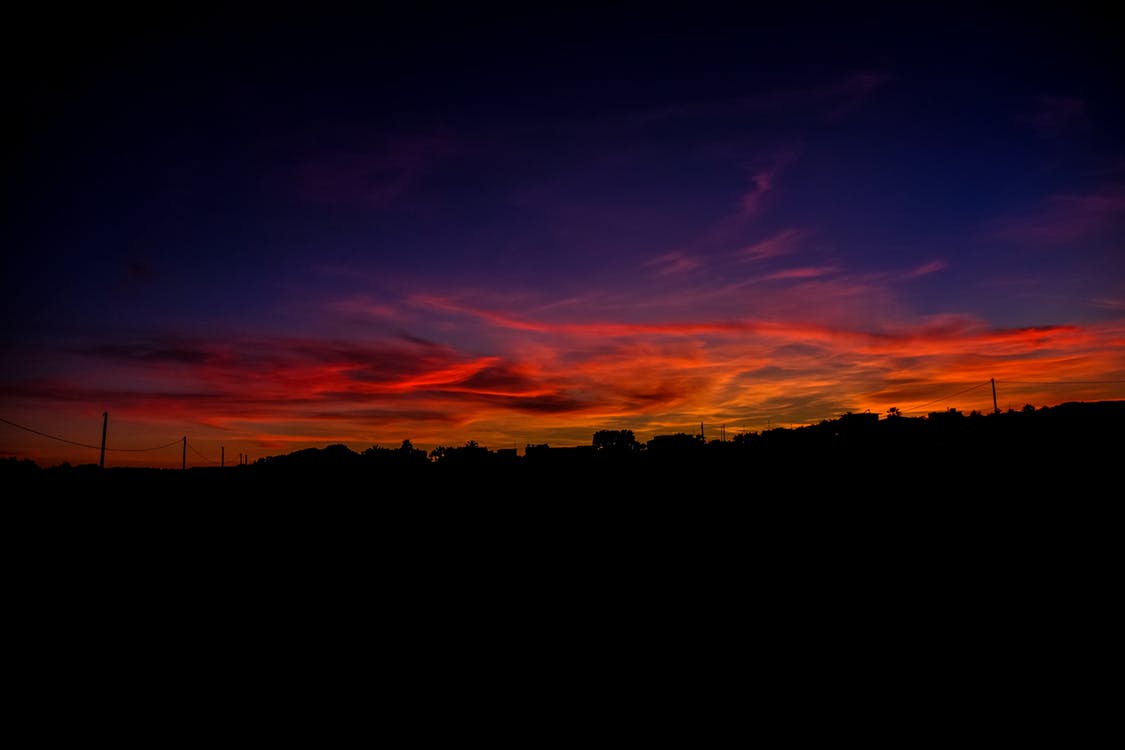
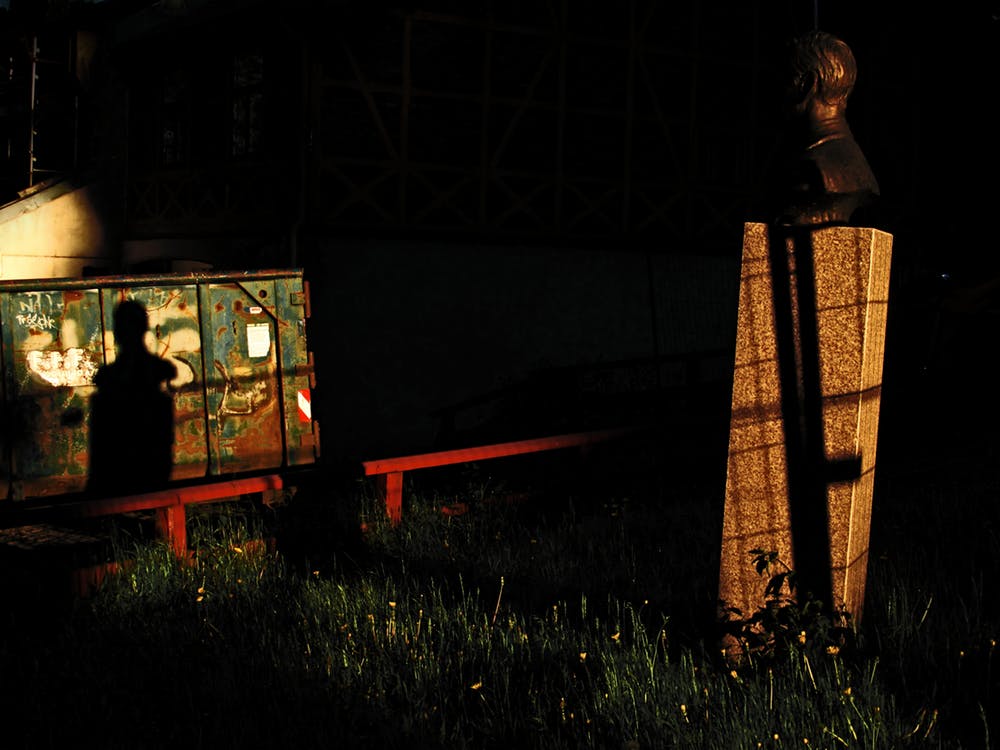
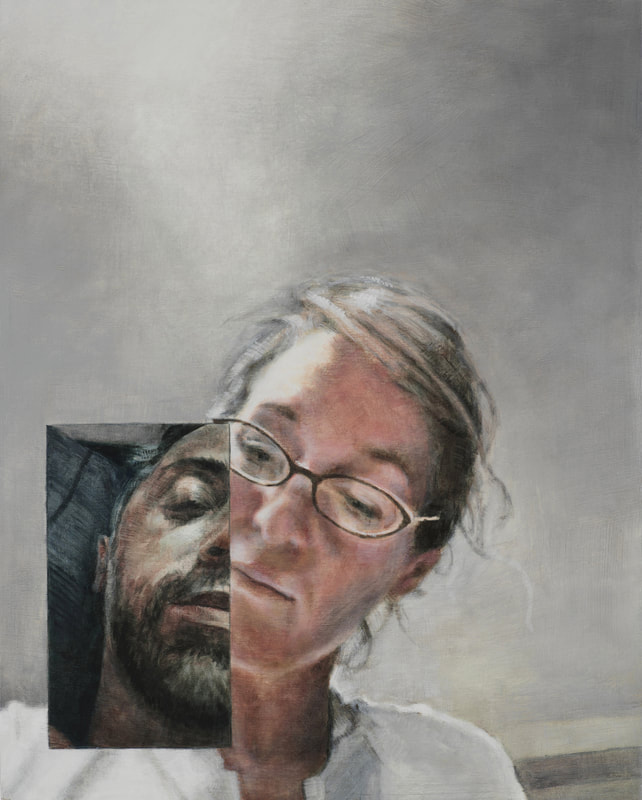
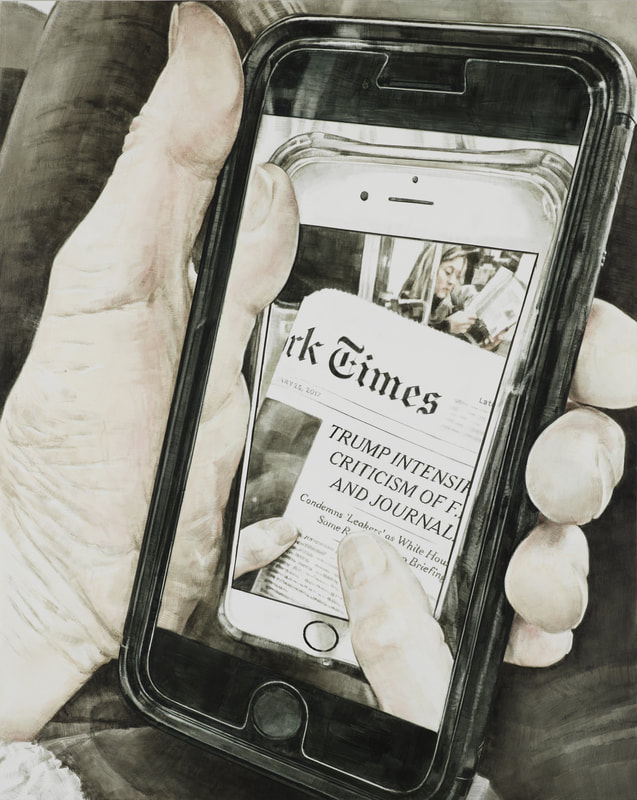
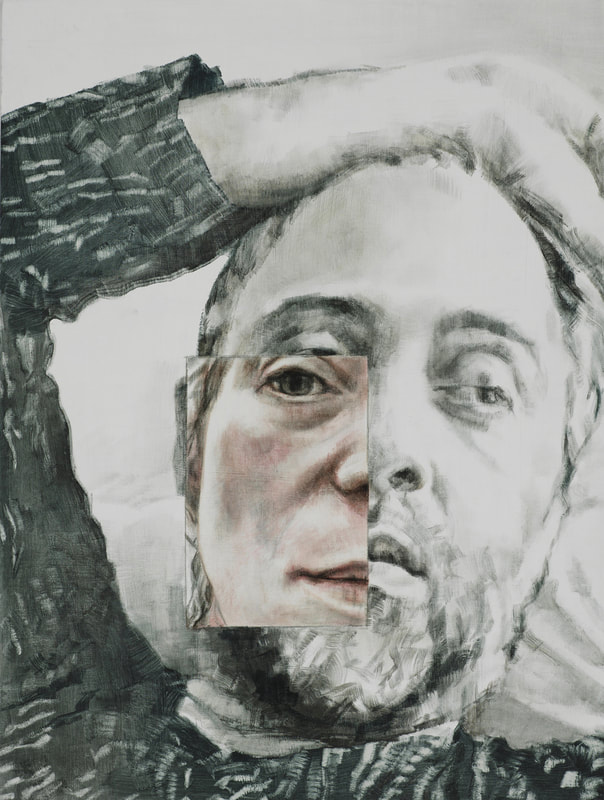
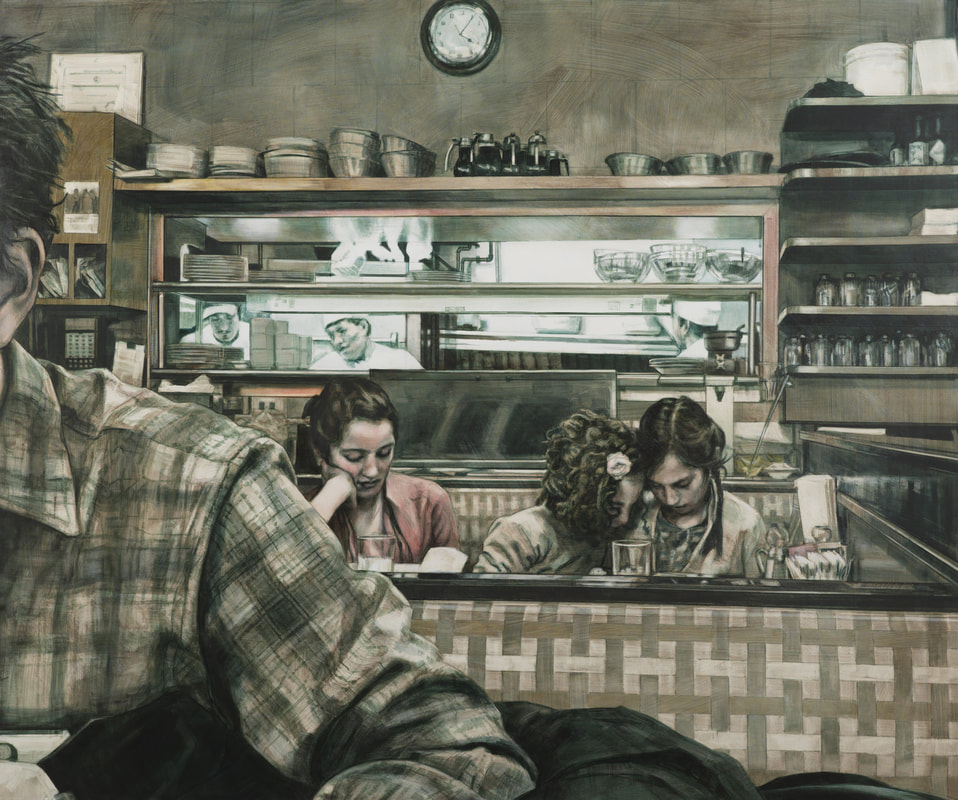
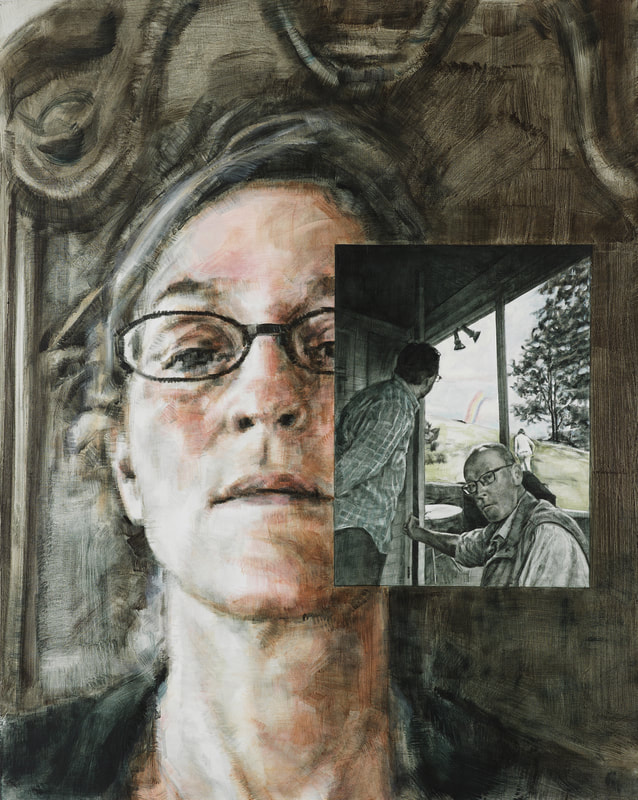
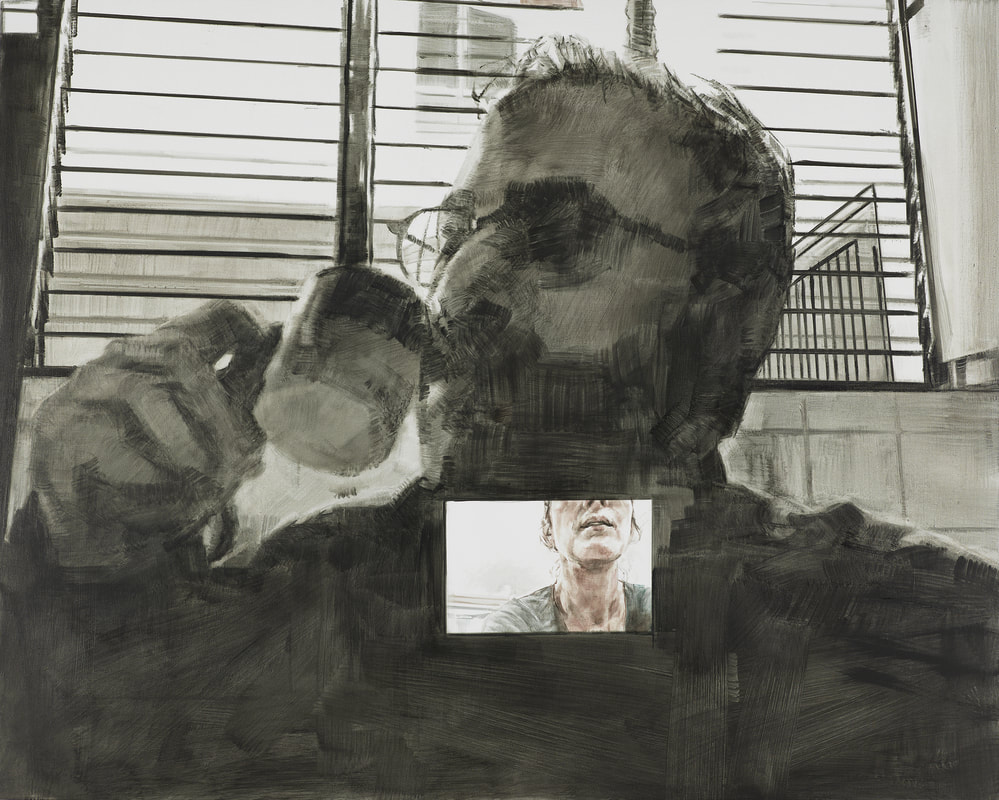
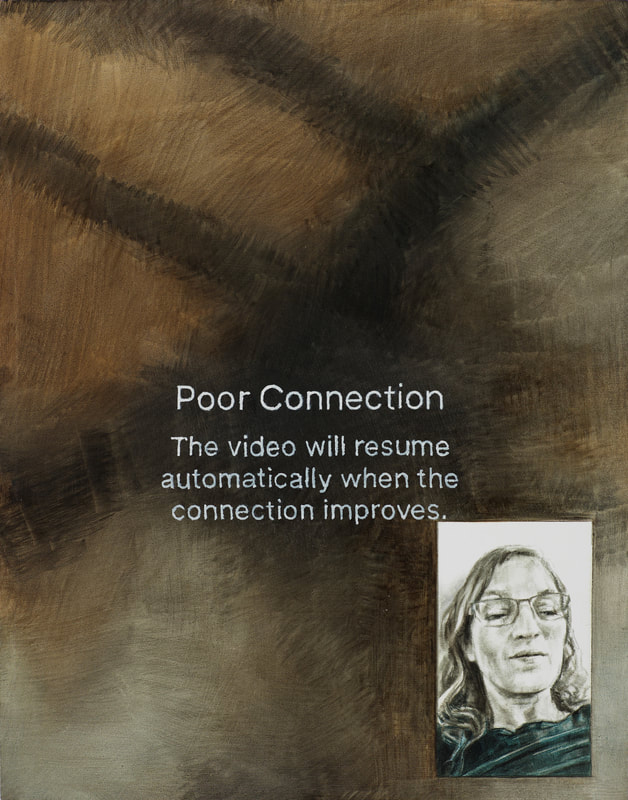
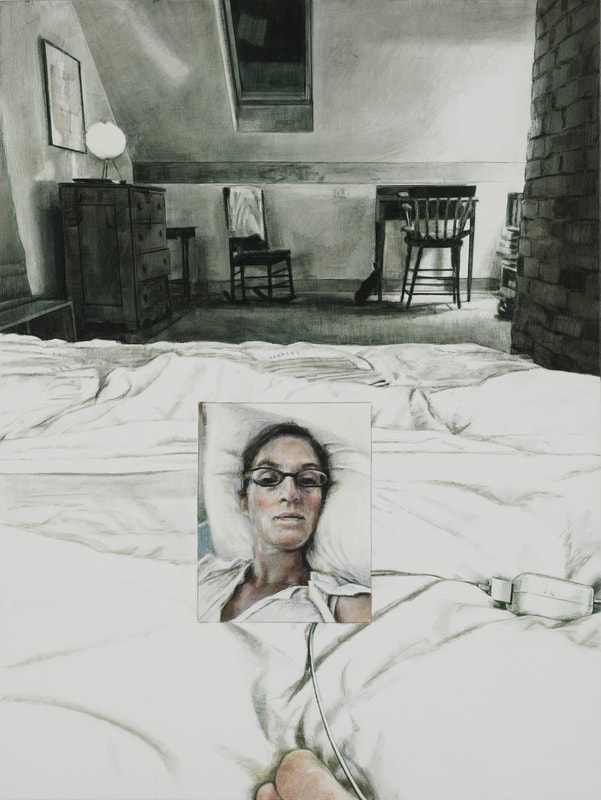
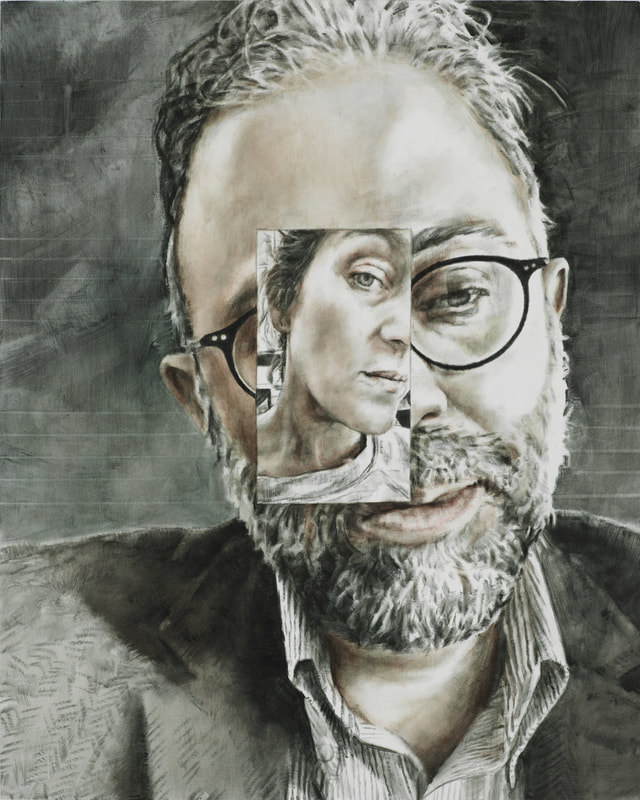
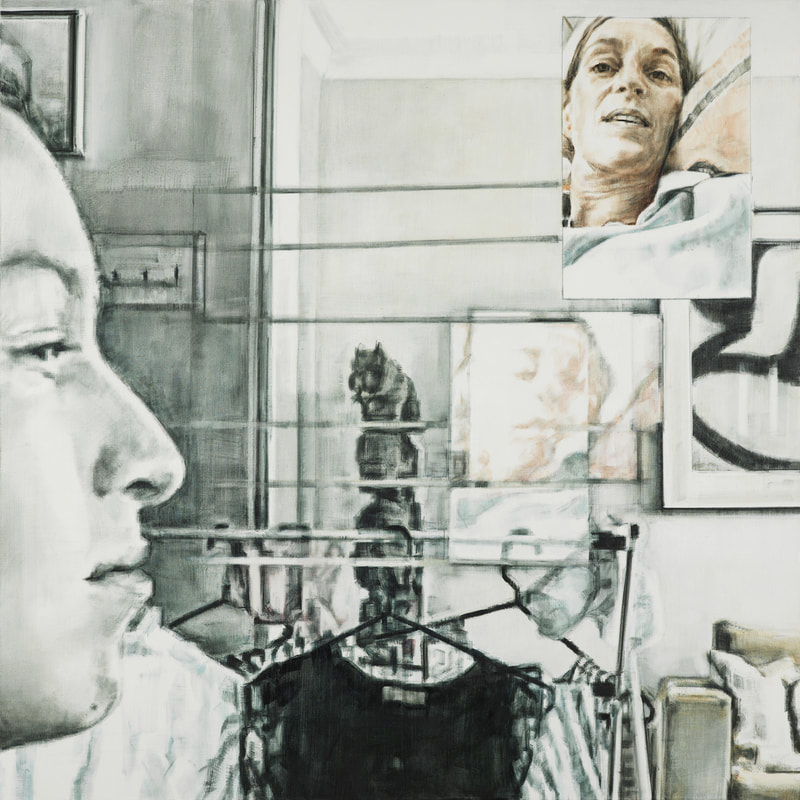
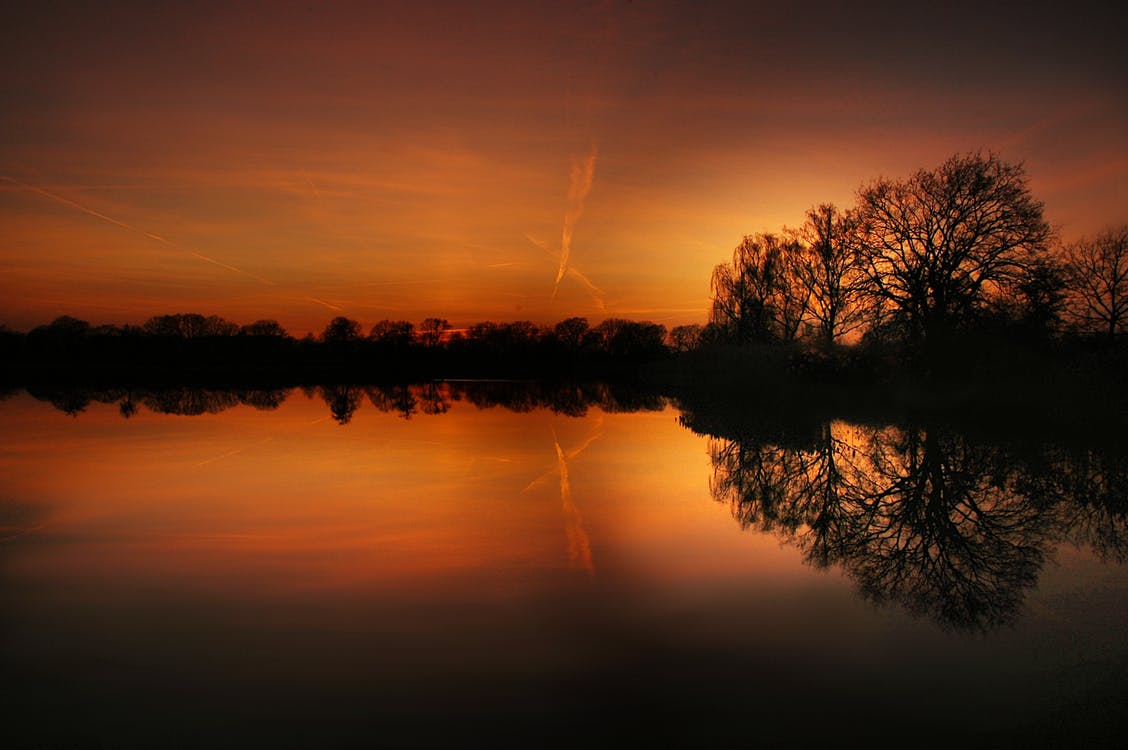
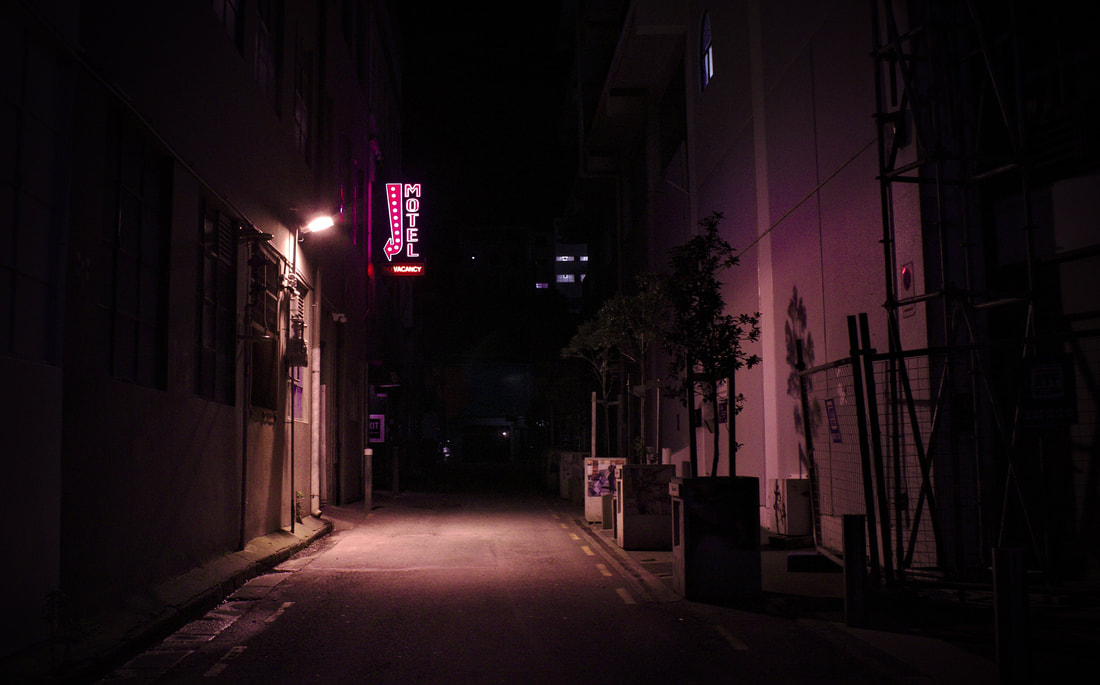
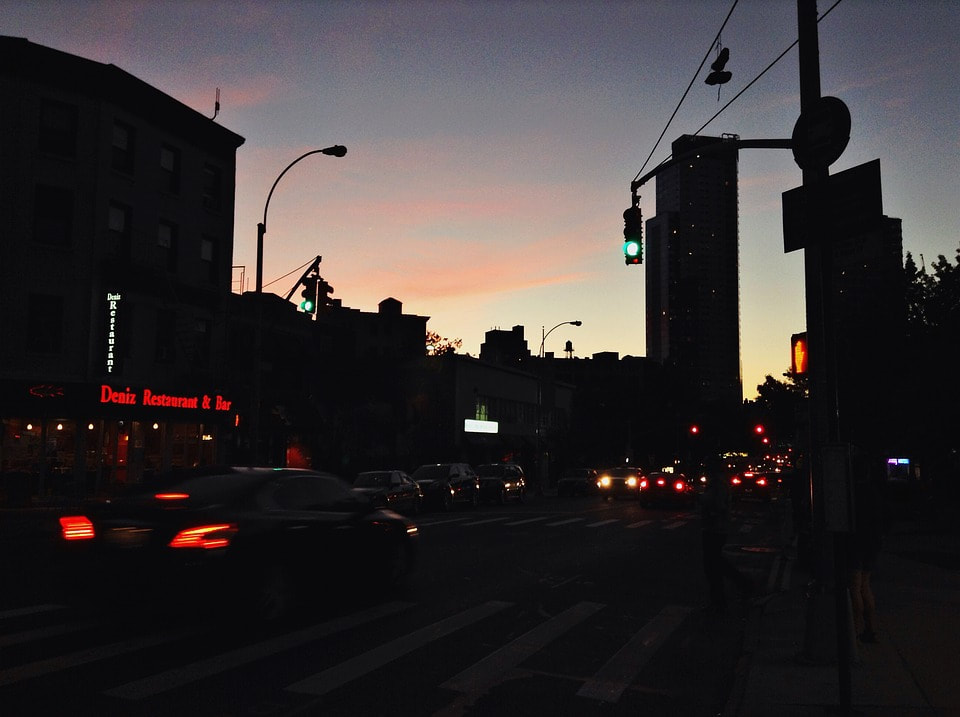
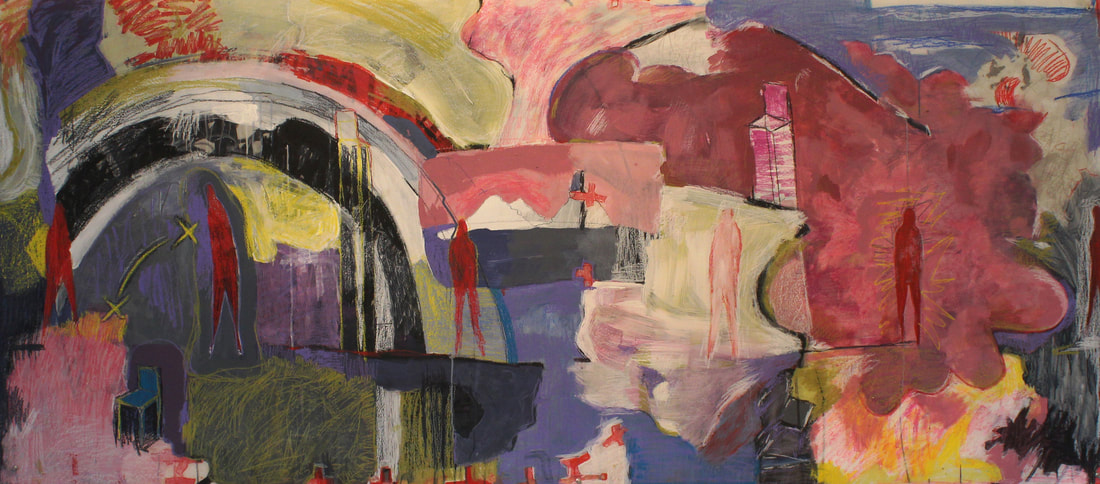
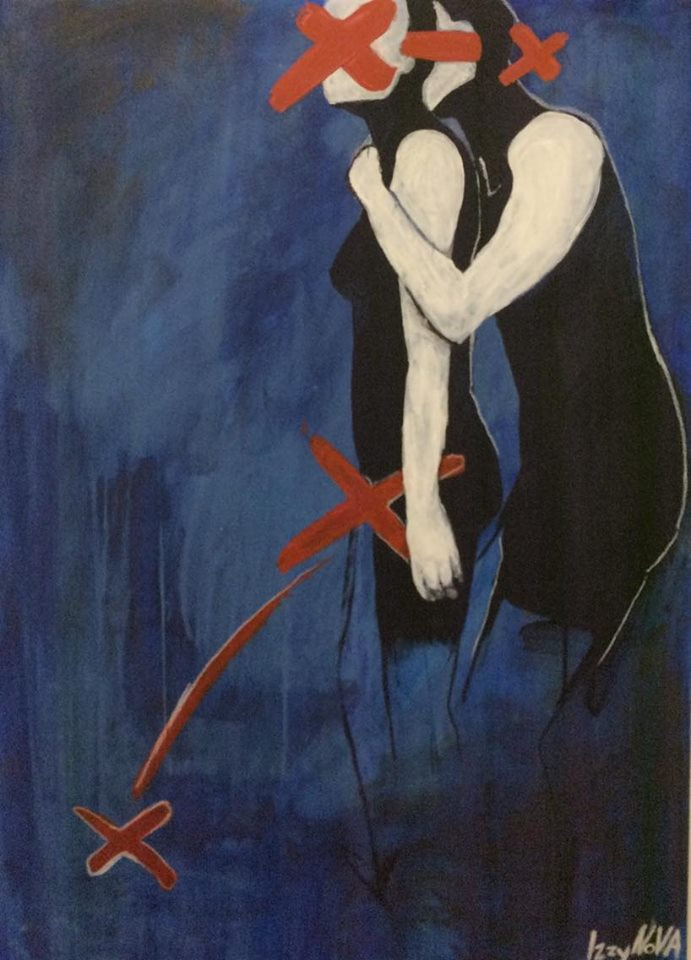
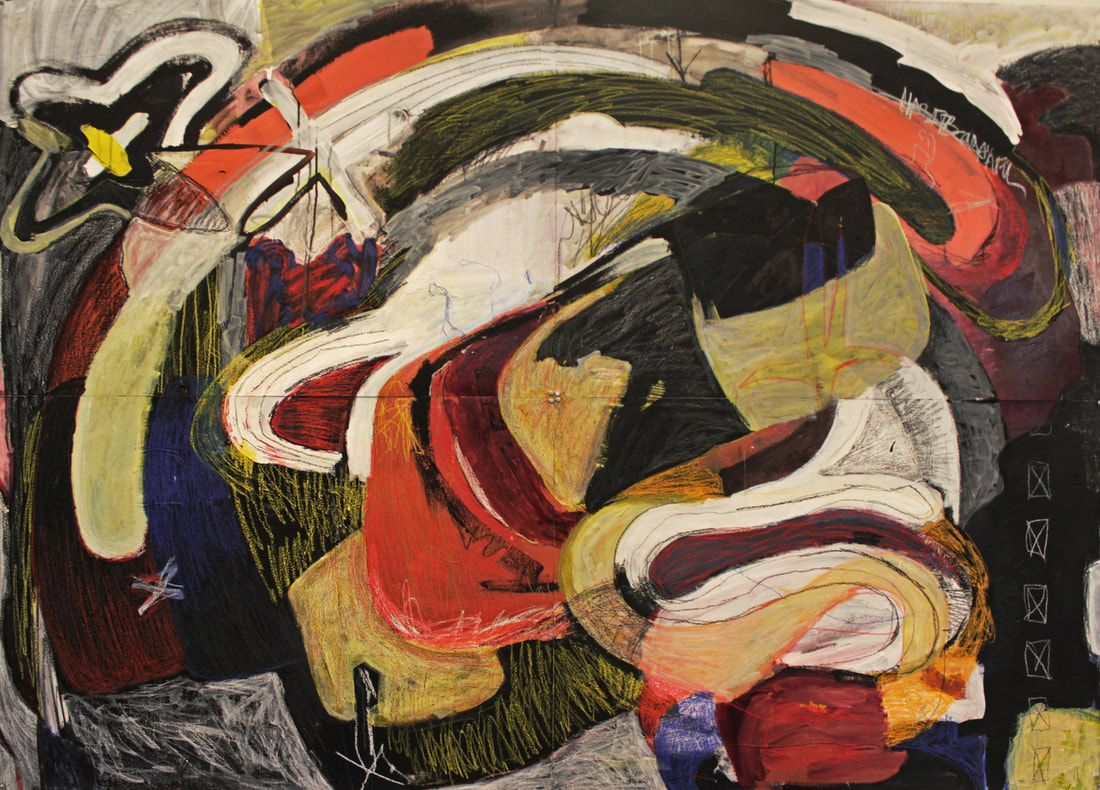
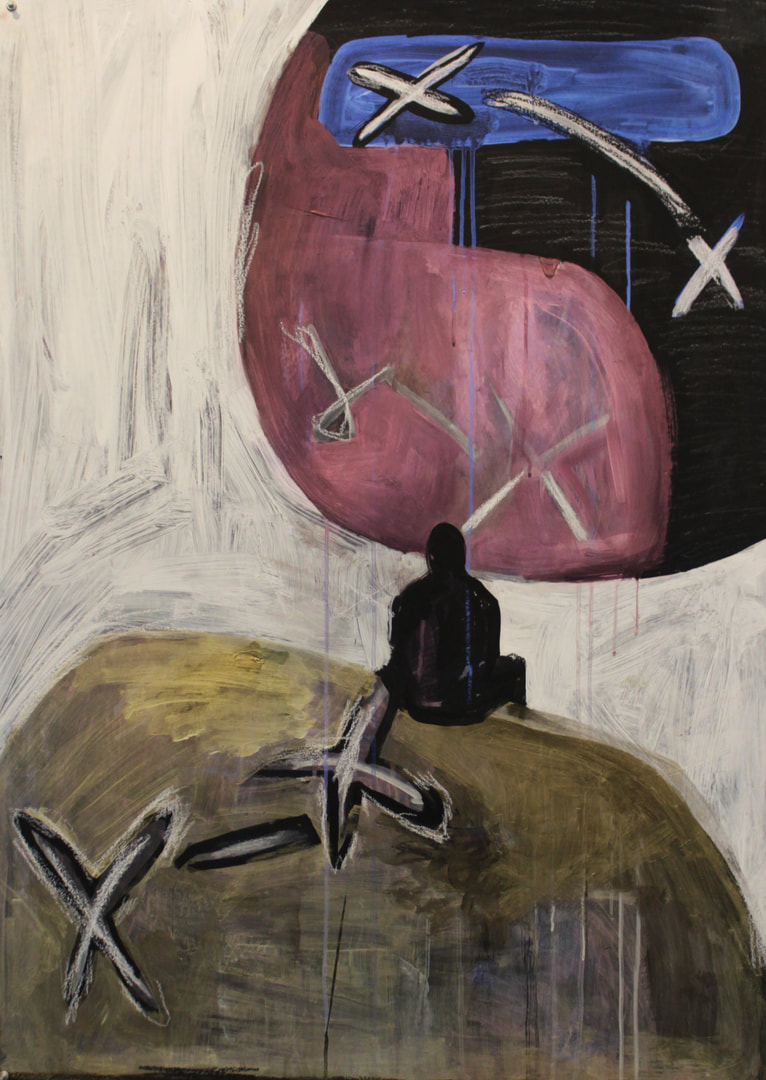
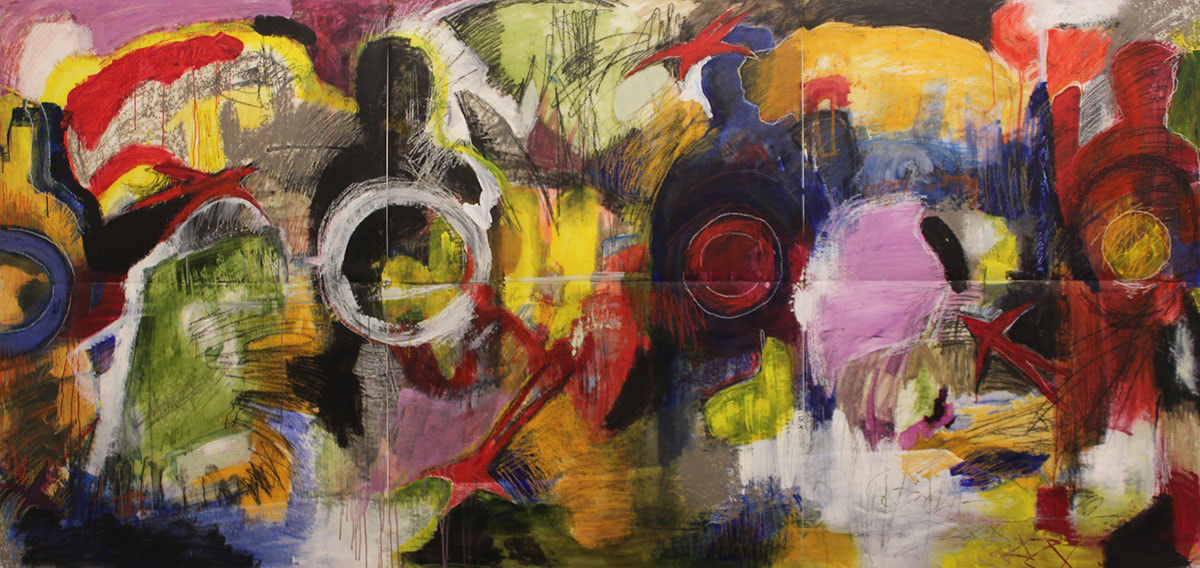
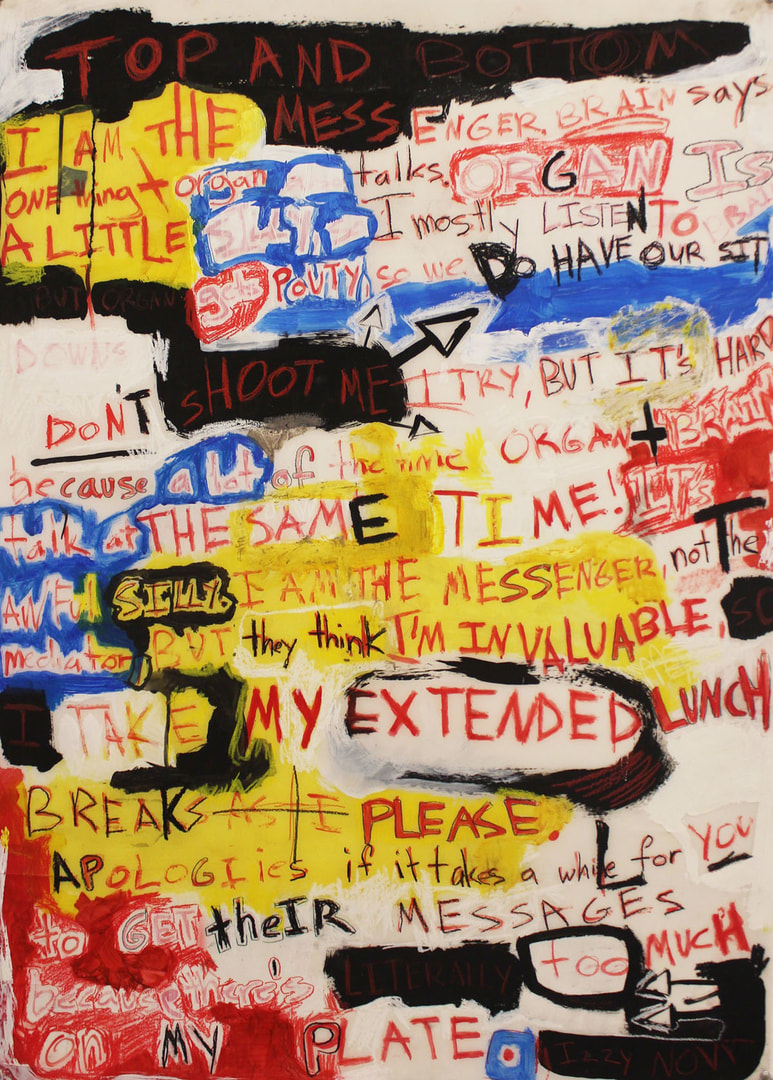
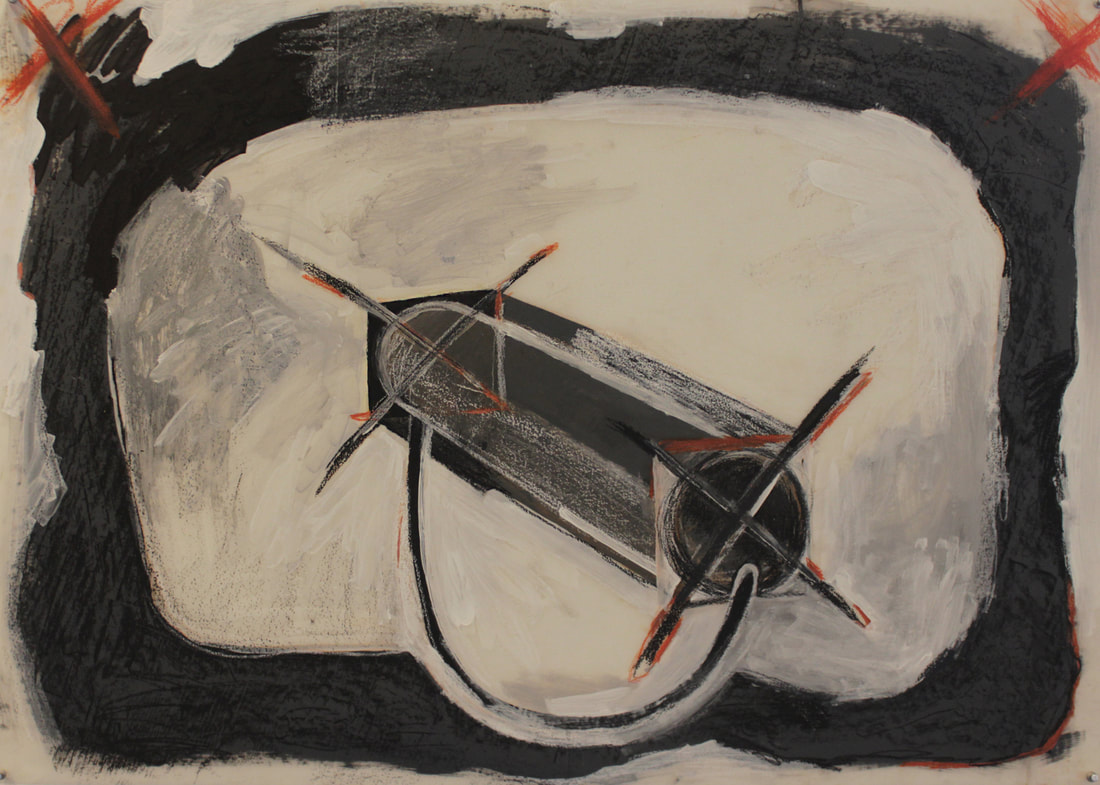
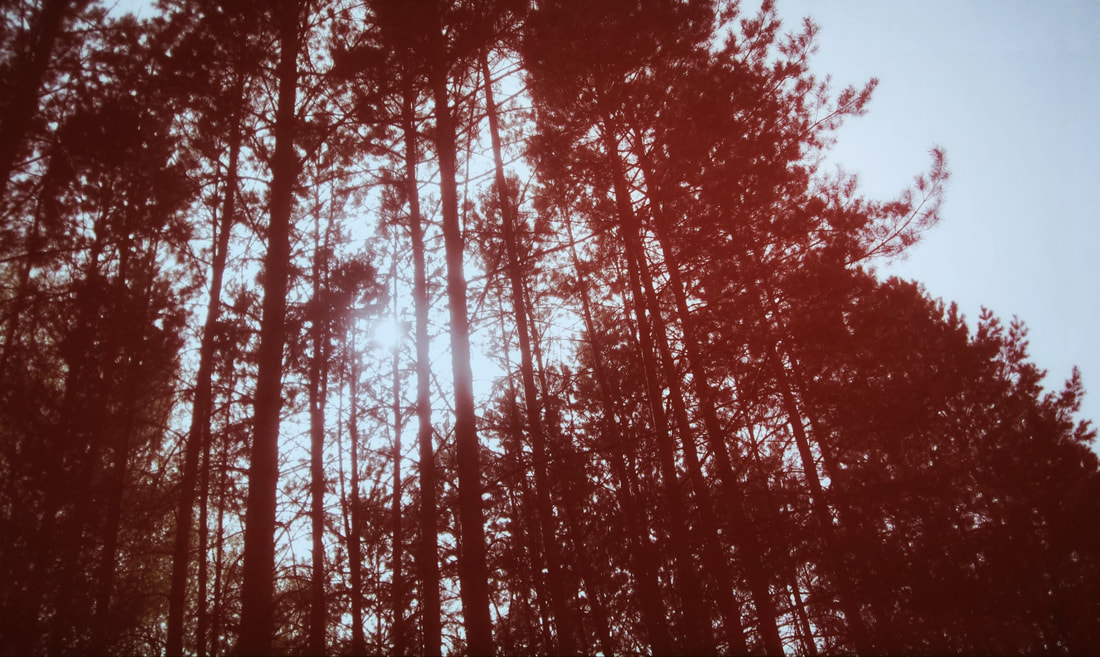
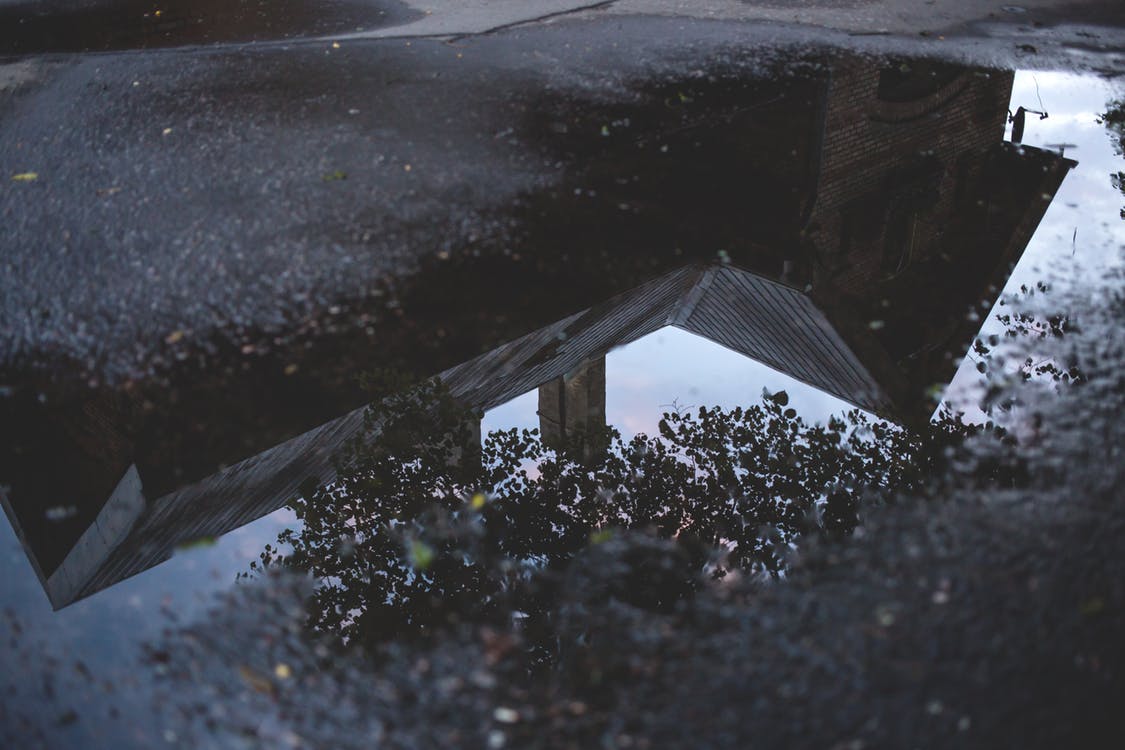
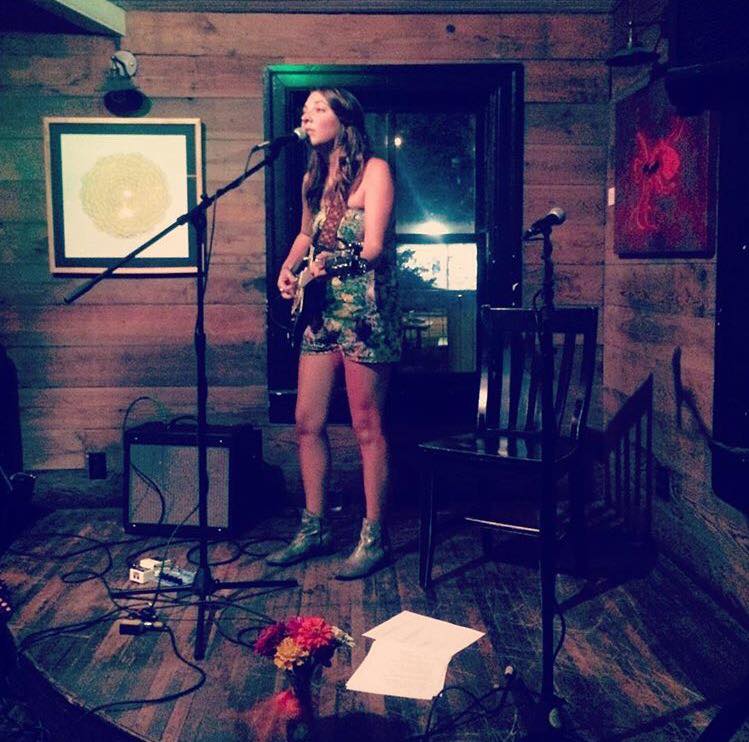
 RSS Feed
RSS Feed
